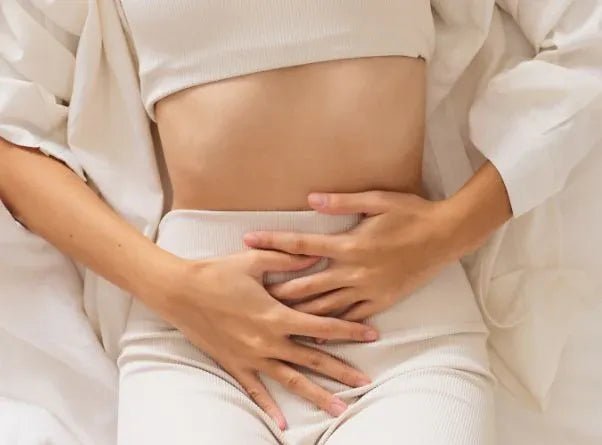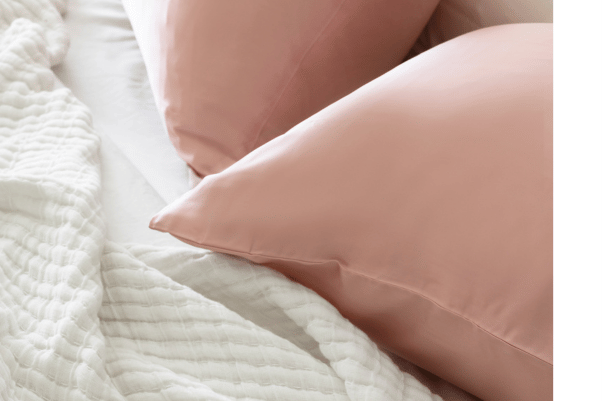As a woman, you know that menstruation comes with a myriad of unwelcome symptoms beyond just the adjustment needed in your bathroom routine. Every woman suffers her unique battles with menstruation symptoms that could include anything from bloating, mood swings, food cravings and severe menstrual cramps.
Mood swings and irritability is a symptom that often leads to feeling emotionally volatile, along with fatigue and tenderness of the breasts which is a common complaint among women. Menstrual symptoms also usually start manifesting before the menstrual cycle officially begins, serving as a precursor to the inevitable discomfort that lies ahead.
Menstrual cramps could be debilitating and very severe in some women which leads to the need for effective period pain relief tips to ease your period cramps too.
According to research at least one in eight women suffer from severe menstrual cramps suffering a wave of pain and discomfort. These menstrual cramps typically cause pain and discomfort in the abdomen but can also extend to the lower back, hips, and even thighs. This causes that time of the month to become a time of much distress quickly, which could overshadow daily activities, making even the smallest tasks feel monumental for most women.
Fortunately, there are quite a few methods of dealing with period pain, thus for those particularly suffering severe symptoms it comes as a relief to know that there are ways to reduce the symptoms of menstruation and alleviate the pain.
Understanding Menstrual Cramps
It is vital to grasp the reason behind period pain and the purpose behind the menstrual cycle itself before you can alleviate the symptoms. The menstrual cycle is a natural process in all women's lives that prepares the body for potential pregnancy every month.
However, if pregnancy does not occur, a woman's uterus renews itself for the next cycle by shedding the uterine lining, which then leads to a period. The shedding usually comes accompanied by contractions of the uterus, which then causes various degrees of pain that we refer to as period pain. Changes in hormones mostly influence these cramps, particularly those released by the prostaglandins which cause uterus muscles to contract intensely.
Understanding these biological factors of your body can help you to address the discomfort associated with period pain and also to seek effective period pain relief.
What is a Menstrual Cramp?
Medical professionals refer to menstrual cramps as dysmenorrhea, which women experience as discomfort in the lower back, groin area, upper thighs, and mainly the abdomen. It is a prevalent issue faced by many women in various degrees, from moderate to more severe pain.
Experiencing period pain is one of the most typical aspects of your menstrual cycle which occurs as mentioned, because the uterus contracts to expel its old lining. However, there are numerous strategies available to women to alleviate period pain and some of the symptoms effectively to ensure overall well-being during this time.
What is a Normal Menstrual Cycle?
Every woman undergoes what is called a menstrual cycle, and it is unique in each case. It encompasses different phases that all play a crucial role in reproductive health. Your menstrual cycle begins just before your period starts when you encounter PMS (premenstrual syndrome) symptoms such as pain, cravings, mood swings and bloating.
After PMS, you have what is called the menstrual cycle when your hormone levels drop, leading to the shedding of the thickened uterine lining and bleeding, if pregnancy has not occurred. The menstrual phase is the start of a new cycle, after which you have what is called the follicular phase, where your body develops follicles that will mature into eggs in your ovaries.
The cycle progresses to what is known as the ovulation phase when mature eggs are released from the ovaries. Mature eggs travel along the fallopian tubes toward the uterus where they attach to the new healthy uterus lining and are ready for fertilisation.
The final stage occurs when the uterus prepares a uterine lining that is the ideal environment for a potential pregnancy. This phase usually lasts a few days when you are at your most fertile and ready for conception. Your menstrual cycle, or period, as it is colloquially known, begins again after the ovulation phase.
Other Symptoms of Menstruation
Besides the obvious period pain or ease of menstrual cramps for that matter, there are quite a few other symptoms women experience during and before their menstrual cycle.
Breakouts
Menstruation breakouts are not uncommon for many women. Most women usually experience a post-period acne breakout about a week before their period starts. These breakouts predominantly manifest in the chin and jawline area, and sometimes on your back or face. They are primarily due to hormonal fluctuations during your menstrual cycle and are a telltale sign that your period is soon on its way.
Breast Tenderness
The rise and fall of your hormone levels usually play a significant role in breast tenderness during your period. Around the time when you start ovulating, your progesterone levels increase, which leads to some swelling and enlargement of the breasts around the mammary glands. The hormonal shift could result in your breasts feeling heavy, or tender, and may vary in intensity from mild to severe symptoms depending on the individual.
Fatigue
Many women often claim to feel more tired as their menstruation approaches. Fatigue is a result of the body preparing itself for potential pregnancy, and gearing up for menstruation. It is a drop in hormone levels that provides energy, which usually leads to feelings of tiredness. Additionally, period pain and other menstrual symptoms could disrupt your sleep, which will further contribute to daytime tiredness and mood fluctuations, leading to fatigue.
Bloating
Bloating is one of the most common discomforts women experience in the days leading up to their period. Women often experience bloating in the days leading up to their period, characterised by a feeling of fullness and tightness in the abdomen, with light swelling noticeable in the areas. The sensation is primarily due to hormonal fluctuations, especially estrogen and progesterone, that lead to water and salt retention in your body. However, you may also notice a slight increase on the scale, but not to worry, it is usually temporary and will resolve a few days after your period starts. The most intense bloating typically occurs to coincide with the onset of your period.
Digestive Issues
Unfortunately, hormonal shifts also affect your digestive system which could lead to some bowel-related issues during your menstrual cycle. Prostaglandins responsible for uterine contraction may also stimulate contractions in your intestines that will have a few changes in your bathroom routine. This means that you may need to go to the bathroom to relieve yourself a few times more than normal. Other symptoms of the digestive system include diarrhoea, nausea, gas, and, on rare occasions, constipation.
Headaches
Headaches and migraines are not uncommon during menstruation as they are symptoms linked to hormonal changes. Fluctuations in your hormone levels could trigger pain response through the neurotransmitter serotonin in the brain, which is typically known to lead to headaches.
Research indicates that there are quite a few women who experience migraines during their menstrual cycle, with a heightened risk usually before and during the cycle and sometimes around ovulation. The likelihood of migraine attacks, if you are someone prone to migraines, increases noticeably in the days leading up to your period, as well as the early days of your period.
Mood Swings
Emotional fluctuations are prevalent during your period and often referred to as PMS, displaying experiences such as mood swings, irritability, anxiety, and feelings of depression. Often these feelings leave you feeling like you are on an emotional rollercoaster. However, there is an easy explanation, and these feelings are quite normal.
Hormonal changes in your estrogen and progesterone levels play a significant role in emotions. When your estrogen levels fluctuate, they disrupt serotonin and endorphin production in the brain, leading to heightened feelings of sadness, irritability, and depression.
Back Pain
Lower back pain is a common symptom related to period pain in general. Lower back pain primarily occurs due to uterine and abdominal contractions or cramps caused by the release of the hormone prostaglandin. This often leads to a range of sensations, varying from mild discomfort to more intense pain that could affect your lower back. While some women experience significant pain, others only feel a slight persistent sensation in the lower back.
Lack Of Sleep
Symptoms such as period pain, headaches, or emotional upheaval during menstruation often cause sleep disturbances, which are not uncommon. These symptoms could easily lead to an inability to fall asleep or to maintain restful sleep. Additionally, there is a slight increase in your core body temperature during your period, or after ovulation, which further complicates sleeping.
This is because your body becomes overheated, and cooler nighttime temperatures are more conducive to peaceful sleep. Even the slightest rise in temperature could disrupt your comfort levels when sleeping, which makes it challenging to achieve restorative sleep.
Causes of Painful Periods
As we have discussed during your menstrual cycle, your uterus contracts causing either moderate or intense cramps in the abdomen. As your period approaches, there is an increase in the levels of prostaglandin that usually peaks just before your period starts, causing pain that usually declines the further you are along in your cycle. However, on the other hand, certain medical conditions such as endometriosis, adenomyosis and pelvic inflammatory disease may result in more intense period pain, leading to severe discomfort during this time.
Symptoms of Period Pain
A few days before your period, you will start to feel some cramping and pain that is usually moderate to more severe depending on the individual. This occurs around 24 to 48 hours before your period starts and eases after two to three days when your period begins. Among other symptoms, such as severe bleeding, emotional fluctuations and bloating, these cramps could impact your daily life if they are severe, as the pain levels may hinder your normal activities.
Effective Ways to Relieve Period Pain
After reviewing all the symptoms and discomforts related to menstruation, especially period pain, you will be relieved to know that there are some home and medical remedies available that will provide effective relief for painful menstrual cramps.
Home Remedies for Relief
A few simple and cheap home remedy options could quickly provide much-needed relief for severe and moderate period pain.
Dietary Changes
Did you know that slightly tweaking your diet during your menstrual cycle could reduce menstrual pain and symptoms? It's so easy, anti-inflammatory foods significantly enhance blood circulation and promote relaxation of the uterus could alleviate discomfort and improve the process of menstruation. Anti-inflammatory foods include:
- Berries.
- Tomatoes.
- Sweet Pineapple.
- Green Vegetables.
- Nuts.
- Olive Oil.
- Avocados.
- Green tea.
- Peppers.
- Mushrooms.
- Fatty fish.
- Herbal tea.
- Cinnamon.
On the other hand, foods containing sugar, trans fats, and excessive salt should be avoided to prevent inflammation and bloating.
Heat Therapy
One of the most effective methods to soothe period pain is using a heating pad or hot water bottle in the painful area.
It significantly alleviates muscle tension and diminishes pain and discomfort associated with menstruation. The heat is soothing and comforting, providing much pain relief. Similarly, you could soak in a very warm bath, comforting bath or shower to provide further relief and mitigate cramping sensations. Applying heat to your back or abdomen is a comprehensive approach for pain management during menstruation that increases blood flow towards the pelvic region to help ease contractions.
Medical Treatments for Period Pain
Besides the effective home remedies, often pain may be more severe requiring some medical intervention, which is not uncommon for many women.
Over-the-Counter Medications
Many women have their stash of over-the-counter pain medications saved for that time of the month. Medications such as Ibuprofen and naproxen are particularly successful in relieving period pain. This is because they lower the levels of prostaglandins responsible for triggering contractions in the uterus.
Acetaminophen is another effective over-the-counter pain medication that alleviates discomfort, though does not tackle the underlying inflammation which often accompanies menstruation. Strictly adhering to recommended dosages of pain medication and seeking guidance from a healthcare professional, such as a doctor or pharmacist, before starting any medication regimen is crucial.
This is especially important for women who suffer from very severe menstrual cramps or conditions such as pelvic inflammatory disease, ovarian cysts, or uterine fibroids, requiring a more substantial treatment.
Hormonal Birth Control
Hormonal contraceptive medication is also effective to treat period pain and to manage hormones, however, they must be taken daily on a more permanent basis and usually require a prescription. Contraceptive medication regulates the levels of estrogen and progesterone, which helps with period pain and also alleviates skin conditions such as acne.
However, they could lead to thinning of the uterine lining, which is mainly the reason behind alleviating menstrual pain and their effectiveness against pregnancy. However, we recommend seeking medical advice from a doctor or healthcare professional to ensure that your options are specifically tailored to your reproductive health needs and that you address any other potential underlying issues.
When to Seek Medical Help
Experiencing menstrual cramps is a part of life. However, when it becomes so unbearable that it disrupts your everyday life, or causes medical issues, it may be a signal to reach out for medical assistance. If you find that you are dealing with excessive pain or bleeding, and other symptoms such as fever or chills, it is vital to seek out medical help. Also, if you have a history of pelvic inflammatory disease or any other significant medical conditions, prompt medical attention is essential to ensure that your reproductive system is healthy.
Alternative Therapies
Besides the normal pain relief methods, there are also a few alternative therapies that are not so common, however, still very effective in alleviating period pain and menstrual symptoms.
Massage Therapy
Massage therapy is essentially a wonderful method of alleviating discomfort and promoting relaxation during your period, which also helps to stimulate circulation throughout your body. Massage therapy, especially concentrated on the abdomen and lower back, is a therapeutic approach that helps to manage the distress associated with period pain, and to reduce the intensity of the pain.
Furthermore, it also contributes to an overall feeling of relaxation and well-being, making it a valuable option, especially for those with more severe cramps. Massages gently manipulate muscles and tissues in the body to release tension in the pelvic area and provide relief from severe cramps, especially those associated with ovarian cysts or pelvic inflammatory disease.
You can incorporate a self-care massage routine to relieve menstrual cramps to complement other methods of pain relief, such as using a heating pad or taking anti-inflammatory pain medication that will lead to a more comfortable menstrual experience. You could also see a professional massage therapist who knows about relieving menstrual pain.
Dietary Supplements
Including a few additional supplements or increasing your food intake of these specific nutrient-rich foods is another alternative. Magnesium and Vitamin B1 or Thiamine are not only effective in relieving period pain but also help to reduce feelings of anxiety and depression. You can source these vitamins from the following foods:
Magnesium
- Green leafy vegetables.
- Legumes.
- Nuts.
- Wholegrains.
- Avocados.
- Fatty fish.
- Peanuts.
- High Cocoa or Chocolate.
Vitamin B1 (Thiamine)
- Liver.
- Peas.
- Nuts.
- Wholegrains.
- Foods such as cereals are enriched with vitamins.
- Pork.
- Sunflower seeds.
- Citrus fruits.
- Raisins.
- Lentils.
- Berries.
- Grapes.
Menstrual pain can vary in intensity. It could be moderate in some women but more severe in others, leading to discomfort that is often debilitating. Various factors, such as health conditions, including uterine fibroids, ovarian cysts, and even scar tissue, could contribute to the severity of period pain.
From the options mentioned, there are quite a few methods to alleviate pain, with the most successful being the use of a heating pad or anti-inflammatory pain medication. Other lifestyle adjustments, such as supplements or dietary changes, may reduce many of the symptoms.
However, in more severe cases, it does become necessary to speak to your physician. So if the pelvic pain either persists or worsens, you may need potential medical treatments or alternative therapies as a more comprehensive approach to your health as a woman.
Conclusion
Period pain is a prevalent issue that affects many women during their menstrual cycle, among other symptoms that cause discomfort. However, luckily, there are numerous strategies available to combat period pain and alleviate most of the symptoms associated with the menstrual cycle.
Gaining insight into the underlying cause of your period pain, as well as other discomfort associated with your period, helps you to identify the most suitable period management treatments for your individual needs. Thus, whether you prefer a good home remedy, over-the-counter medication or more significant medical attention, there are a variety of options to mitigate menstrual pain and symptoms that are proven effective, and that will enhance your overall reproductive health.








